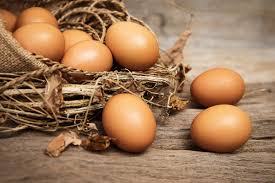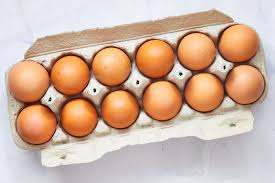In the pursuit of healthier and more ethical consumption, the choice between conventional and cage free eggs is increasingly relevant. While conventional eggs might seem like the cheaper option, cage-free eggs offer numerous benefits that extend beyond mere cost considerations. Here are a dozen reasons why opting for cage-free eggs is not only a responsible choice but also a more sustainable and humane one.
Contents
Reasons to Choose Cage Free Eggs:
Animal Welfare
Cage free egg production prioritizes the welfare of hens, offering them freedom of movement and the ability to express natural behaviors. Unlike conventional cage systems, which confine hens to tight spaces, cage-free environments allow for a more comfortable and fulfilling life for the animals. This emphasis on animal welfare aligns with the values of compassion and respect for living creatures, fostering a food system that prioritizes the well-being of animals alongside the production of high-quality eggs.

Improved Health
Cage-free hens typically enjoy better health due to their ability to move freely and engage in natural behaviors like dust bathing, foraging, and perching. This improved well-being directly influences the quality of the eggs they produce. Studies suggest that eggs from cage-free hens may contain higher levels of essential nutrients such as vitamins A and E, omega-3 fatty acids, and other beneficial compounds.
Additionally, the reduced stress and healthier living conditions of cage-free hens can lead to lower incidences of diseases, resulting in cleaner and safer eggs for consumption. Choosing cage-free eggs not only supports the health of the hens but also provides a nutritionally superior product for consumers.
Reduced Stress
Cage-free environments significantly reduce the stress levels experienced by hens. Unlike the restrictive cages of conventional systems, cage-free settings allow hens to roam, stretch their wings, and engage in natural behaviors like pecking and dust-bathing.
This freedom to move and interact in a more natural manner not only enhances their overall well-being but also contributes to the production of higher-quality eggs. Reduced stress levels in hens are directly linked to better health, making cage-free eggs a more appealing choice for those concerned with both animal welfare and the quality of their food.
Ethical Considerations
Choosing cage-free eggs reflects a commitment to humane treatment of animals. In cage-free systems, hens can move freely and exhibit natural behaviors, enhancing their quality of life. This choice supports ethical farming practices, aligning with consumer values of compassion and respect for animal welfare, and promotes more humane standards in the food industry.
Environmental Impact
Cage-free egg production often results in a lower environmental footprint compared to conventional systems. These systems typically use less water and produce less waste, contributing to more sustainable farming practices. By choosing cage-free eggs, consumers support methods that are better for the planet, helping to reduce the overall environmental impact of egg production.
Consumer Demand
The increasing demand for cage-free eggs reflects a broader shift in consumer preferences towards ethically and sustainably produced food. As awareness grows about the living conditions of farm animals, more people are actively seeking out products that align with their values of compassion and responsibility.
This rising demand serves as a powerful driver for farms to transition towards cage-free systems, as they respond to the desires of their customer base. By choosing cage-free eggs, consumers not only advocate for better animal welfare but also contribute to the momentum towards more humane and sustainable agricultural practices.
Industry Evolution
The poultry industry is undergoing a significant shift towards cage-free egg production. This change reflects a growing awareness among consumers regarding the ethical treatment of animals. By embracing cage-free systems, farms are adapting to meet these evolving consumer preferences, signaling a positive evolution towards more humane and sustainable practices.
Regulatory Compliance
Increasingly stringent regulations are driving the transition towards cage-free egg production. Governments and regulatory bodies are mandating the phase-out of conventional cage systems in recognition of the importance of animal welfare.
By complying with these regulations, farms are not only meeting legal requirements but also aligning with the ethical expectations of consumers. This shift towards cage-free production reflects a broader commitment to sustainability and responsible farming practices within the industry.
Transparency
Cage-free egg production offers consumers greater transparency into the origins and methods of egg production. With cage-free systems, there’s increased visibility into how hens are raised, housed, and cared for.
This transparency empowers consumers to make informed choices aligned with their values, as they can better understand the conditions under which the eggs they purchase are produced. Additionally, increased transparency fosters trust between producers and consumers, encouraging accountability and driving continuous improvements in animal welfare and farming practices.
Community Impact
Opting for cage-free eggs not only benefits individual consumers but also has a positive impact on local communities. Cage-free egg farms often prioritize community engagement and ethical farming practices, creating employment opportunities and fostering stronger connections between producers and consumers. By choosing cage-free eggs, consumers support sustainable local economies while promoting humane treatment of animals.

Food Safety
Cage free eggs may offer enhanced food safety compared to conventional eggs. With hens experiencing lower stress levels and better health outcomes, the risk of certain diseases may be reduced. Additionally, the freedom of movement in cage-free environments can result in cleaner eggs. However, proper handling and storage practices remain essential for all eggs to ensure food safety.
Personal Values
Ultimately, Choosing cage free eggs is a reflection of personal values such as sustainability and ethical consciousness. It’s a conscious decision to support farming practices that prioritize animal welfare and environmental sustainability, aligning with a broader ethos of compassion and responsibility.
Conclusion:
By opting for cage free eggs, consumers can make a significant difference in supporting more humane and sustainable farming practices while enjoying eggs that are not only healthier but also produced with greater respect for animal welfare. It’s a choice that benefits not only the individual but also the environment and future generations.



